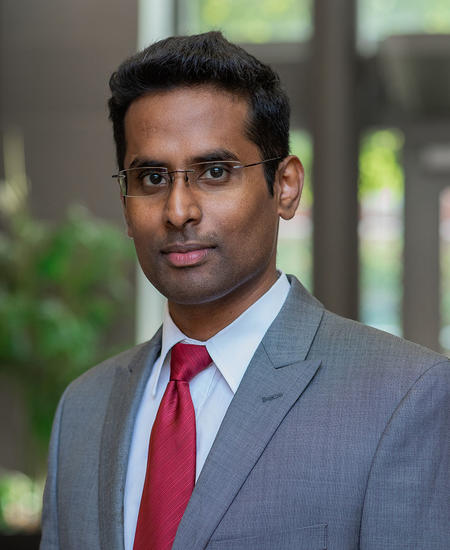For this work, Annamalai will collaborate with Arun Aneja, an orthopedic surgeon in the UK Healthcare Department of Orthopaedic Surgery, to elucidate the role of the stretch-activated cation channel Peizo1 on macrophage function and develop an immunomodulatory platform to reduce the burden of bone diseases in patients.
“I am excited about the research projects we are undertaking. With Annamalai’s biomedical engineering background and vast experience, I feel we can make significant strides to improve the quality of care we provide our orthopedic trauma patients,” says Aneja.
Annamalai’s research program is broadly focused on developing engineered strategies to harness the body’s natural healing responses by understanding the mechanobiology of immune cells and immunomodulatory cells. They are also studying the end-organ effects of coronavirus on the musculoskeletal system.
With this grant, Annamalai’s team will fulfill the OTA’s mission to promote excellence in treating and preventing musculoskeletal injuries and care for the injured patient.
“This award reflects the competitiveness of the translational research program Annamalai is building at UK. The clinical collaborations and research partnerships will surely help accelerate his pursuit of clinically-relevant solutions to solve major healthcare problems,” says Guigen Zhang, professor in the UK Department of Biomedical Engineering. “The Biomedical Engineering Department is actively contributing to elevating Engineering-Medicine collaborations at UK for developing engineering-enhanced clinical solutions to help patients.”
Congratulations to Ramkumar T. Annamalai!
Aided by the Orthopedic Trauma Association.
